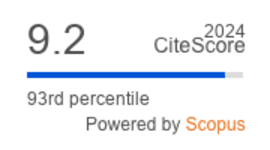Cost-effectiveness of Public Health Strategies on COVID-19 Control: A Systematic Review
DOI:
https://doi.org/10.36877/pmmb.a0000268Abstract
The COVID-19 pandemic has been one of the greatest public health challenges imposing significant economic and societal costs. A wide range of public health interventions (PHIs) have been implemented to control the virus, with many aggressive measures that led to economic downturn and social calamity. However, evidence concerning their impacts in terms of costs and benefits of the best buy strategy is limited. This systematic review aimed to provide a critical summary of full economic evaluations (EEs) to inform decisions concerning their adoptions. A systemic search in 7 relevant databases and other sources were conducted. Out of 11,584 and 11 records identified from databases and other sources, a total 31 full EEs focusing on PHIs were included. Majority of studies included were in good quality and from the US and upper-middle, and high-income countries whereas only 6 studies were from low and middle-income countries. Suppression/containment was the most deployed strategy (n = 19), followed by screening/detection (n = 8), and protection (n = 4). Aggressive elimination strategy usually results in more lives or QALYs saved compared to mitigation strategies but at a very high cost. The trade-off between aggressive and loose suppressions depends on several factors including timing of implementation, duration, epidemiological characteristics of the virus, and the healthcare capacity. Tight and timely adoption of effective intervention at the early stage of pandemic is key in shrinking the number of cases. Using a combination approach is generally more cost-effective compared to a single intervention. Personal protective measure is highly cost-effective in protecting healthcare workers in a high prevalence scenario and when it is adopted together with social distancing strategy. Future studies to address the flaws of current evidence are warranted. This review provides important insights regarding adoption of PHIs and their cost-effectiveness which would be useful to inform policy decisions in response to COVID-19 and future pandemics.
Downloads
Published
How to Cite
Issue
Section
License

This work is licensed under a Creative Commons Attribution-NonCommercial 4.0 International License.
Author(s) shall retain the copyright of their work and grant the Journal/Publisher right for the first publication with the work simultaneously licensed under:
Creative Commons Attribution-NonCommercial 4.0 International (CC BY-NC 4.0). This license allows for the copying, distribution and transmission of the work, provided the correct attribution of the original creator is stated. Adaptation and remixing are also permitted.

This broad license intends to facilitate free access to, as well as the unrestricted reuse of, original works of all types for non-commercial purposes.
The author(s) permits HH Publisher to publish this article that has not been submitted elsewhere.



.png)

.jpg)
